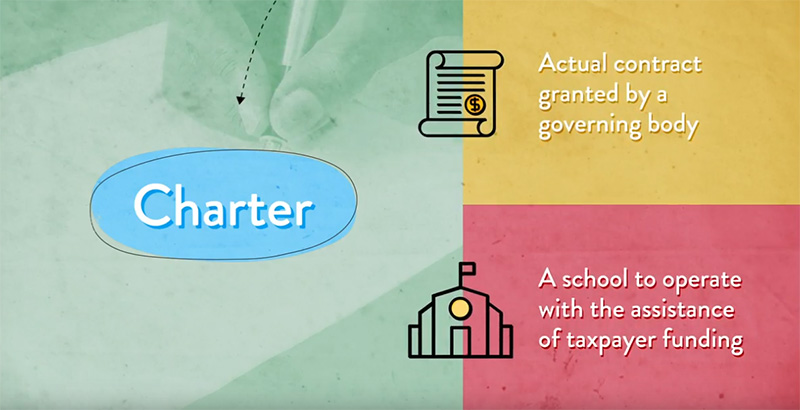Commentary: Since COVID, Charter School Board Members Are More Important Than Ever. Some Videos to Help These Essential Volunteers

On a warm summer night recently, the board of the Treasure Valley Classical Academy charter school in Fruitland, Idaho, had to decide whether to open its doors to students and teachers, and how best to do it. With smoke from wildfires in Oregon in the air and COVID-19 infection rates on the rise across the county, several dozen parents were in attendance in the socially distanced auditorium while many more participated by Zoom. Board members debated how the school should reopen this fall. Should instruction occur entirely in person, entirely online or some of each? Should students be required to wear masks all day? How would lunch be served? Would children still have recess? How should busing work? Should educators with health conditions be required to teach in person?
None of the seven volunteer school board members originally signed up to referee these kinds of questions, but they found themselves shouldering the authority to make decisions that would affect the health, welfare and educational futures of hundreds. But in reality, important decisions are commonplace for charter school boards. The COVID-19 pandemic has merely elevated the visibility of these boards and the work they do.
My Idaho-based nonprofit education organization, Bluum, received a $22 million federal Charter School Program grant in 2018 to increase the number of “quality charter school seats by 8,650 students, especially for our most educationally disadvantaged and rural students, through startup, replication and expansion.” We are now about halfway through our work and have allocated 13 subgrants to schools like Treasure Valley Classical Academy.
Critical to our efforts has been the work of volunteer charter school boards that are responsible for providing oversight of the individual partner schools and the public dollars allocated to them. These board members are key to the success of our efforts to increase the number of quality new school seats across Idaho, but much of their work goes unseen and underappreciated.
Public charter schools that thrive and serve their children and families well inevitably have strong boards made up of dedicated, well-prepared volunteers. This was true prior to COVID-19, and it is even truer now. To help make the case for the importance of charter school boards, and why serving on one is a worthy cause and valuable use of one’s time, we developed a series of videos on five topics critical to effective public charter school governance.
Subjects range from “Do’s and Don’ts of Effective Charter School Governance” to “Legal Responsibilities of Charter School Boards” to “Competencies, Makeup and Habits of Highly-Effective Governing Boards.” The videos are introductory; they do not answer all the questions and issues that charter school board members might have or encounter in their work. Rather, they are designed to offer guidance on what good governance looks like and how to find more information in support of it.
Charter school governing boards are a lot like a great accountant or attorney. You really know how important they are only when something goes wrong. In fact, as part of our grant, we conducted surveys of 1,000 parents and teachers in our funded schools and asked, “Which is most important to your school’s success?” Almost half of respondents answered “teachers” and a third answered “school leadership,” while 3 percent were “not sure.” None answered, “school board.” Clearly, charter school boards – at least in my state – get no respect.
Yet, boards are pivotal to the success or failure of any public charter school. Under Idaho law, it is the board of directors to which a charter is granted, and this is not just an Idaho issue. Across the country, charter school boards own the charter and are legally on the hook for its success.
Clearly, charter school board members matter. Upward of 35,000 Americans serve on boards of one of the more than 7,200 public charter schools in America. Collectively, these boards oversee the education of more than 3.1 million students, and they are responsible for ensuring the appropriate spending of almost $35 billion in state and federal tax dollars.
As with Treasure Valley Classical Academy, the COVID-19 pandemic has elevated the importance of charter school boards and the work they do. These volunteer board members have had to make tough calls on reopening of schools, balancing pressure from parents returning to work for safe, supervised places for their children to learn with the health and safety of students and staff and all the additional costs that go with these decisions. They’ve had to make politically contentious decisions about whether to require masks, understanding that their choices could well affect the school’s budget — in a funding environment where money follows children to their school, fewer students mean fewer dollars.
And the work ahead for charter school board members will be just as challenging. We owe it to those who serve in this capacity to ensure they are prepared for the responsibility and have the resources they need to deliver results for their communities.
Terry Ryan is CEO of the Idaho-based education nonprofit Bluum.
Get stories like these delivered straight to your inbox. Sign up for The 74 Newsletter

;)